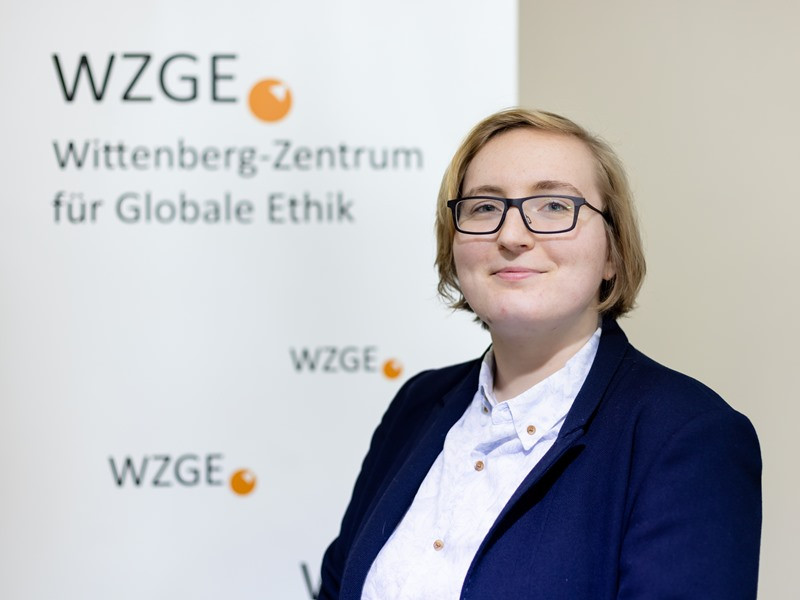
Title of Dissertation: What if…? Counterfactual reasoning in ethical decision-making in business contexts
Supervisor: Prof. Dr. Philipp Schreck
University: MLU Halle-Wittenberg
Scholarship: HaVo-Stipendium
Cohort: 8th Cohort, since 2021
Email:
[accordion activeIndex=""]
[item title="Short Abstract"]
Counterfactual explanations have become a popular way of producing more transparent, and thus, more ethical artificially intelligent decision makers. But how are counterfactual explanations of AI impacting human behaviour - and do they lead to better outcomes than alternative ways of dealing with AI?
What if…? That’s a question often asked when contemplating prior events and decisions. But is the consideration of possible outcomes integral to the way we make ethical decisions? The core of my project aims to identify how counterfactual thinking influences ethical decision making within a business context, drawing from insights from cognitive neuroscience, behavioural economics, psychology, philosophy and decision theory more broadly construed. A counterfactual is any statement that is counter to the facts, meaning any statement that is not true in the given states of affairs. Counterfactual thinking is reasoning that reflects upon that which is not the case - it is used when evaluating how the past could have turned out, and how the future may develop by mentally creating possible alternative scenarios to reality.
I have been especially interested in the way counterfactual explanations are being used to explain and/or interpret the outcomes of decisions made by artificially intelligent agents (AI). In a fastly developing world where more and more decisions are being made through the support of or solely by AI, many argue that transparency is being required to ensure that all AI-made decisions are fair and ethical. One popular attempt at becoming more transparent is for the AI to generate a list of counterfactual statements in addition to the decision made; For example, an AI used in a hiring process might not only provide the decision that a candidate should be rejected, but also provide some insights on how the application would need to differ to have been considered for a position. So, a candidate might be informed that the system would have recommended them for the position, if they had five more years of experience or if they were fluent in another language or if they had participated in relevant training.
These kinds of explanations are said to have two main benefits; A human decision-maker would be able to overrule an AI made decision on the basis of disagreeing with the counterfactual provided (e.g., in the example above, by deciding that speaking another language was not essential to the given job), and a person affected by such a decision is also immediately being given ground to contest the AI made decision (e.g., in the example above, by providing proof that they had participated in relevant training after all).
My work aims to investigate the way counterfactuals influence both the cognitive decision making processes within a business context. With more and more organisations adopting counterfactual explainability models for their artificial intelligence systems, understanding the way counterfactuals shape decision making is integral to ensuring that AI is being used responsibly.
I aim to apply experimental methods as used in behavioural economics and psychology to identify how counterfactual thought impacts decision making, and which kinds of counterfactuals lead to ethical behaviour. Additionally, I will combine these empirical results with more traditional philosophical methods to further the conceptual understanding of counterfactual explainability in the realm of AI decisions.
[/item]
[item title="Research Interests"]
- Decision Making
- Imagination
- Counterfactual Reasoning
- Heuristics and Biases
[/item]
[item title="Education"]
- 2021, MSc Applied Social Psychology, Higher School of Economics Moscow, Russia
- 2021, MSc Economic Psychology, University of Tilburg, Netherlands
- 2020, Study Abroad, Ca’ Foscari, Venice, Italy
- 2019, BA (Hons) Psychology & Philosophy, University of Stirling, Scotland
- 2018, Study Abroad, City University Hong Kong, Hong Kong
[/item]
[item title="Professional and Academic Career"]
Company Internships i.a.
- 2021, UX & Design Research/Data Intern, Bang & Olufsen, Struer, Denmark
- 2019, Human Rights Research Intern, Clifford Chance, London, England
- 2018, Human Resources Intern, UPM, Krakow, Poland
[/item]
[item title="Publications"]
- Stuart, Michael T., McLoone, Brian and Grützner, Cassandra. Counterpossible Reasoning in Biology. (Under Review.)
[/item]
[item title="Conference Contributions: Talks"]
-
2022. “tba” German-Baltic Conference on Sustainability & Digital Systems, Riga, Latvia, October 27-30. (Invited as a Youth Ambassador to discuss problems (and solutions) for AI and policy)
-
2022. “Behavioural Data Governance - the feasibility of data leak prevention through nudging” The Philosophy of Data Science: Data Science Governance, Centre for Human & Machine Intelligence (HMI), Frankfurt School of Finance & Management, Frankfurt, Germany, June 10-11, with R. Ruehle, M. Appels and M. Goldmann
-
2021. ”A taxonomy of LPs” filozofikon, Uniwersytet Śląski, online, December 4-5
- 2021, Modal Modelling in Science: Modal Epistemology Meets Philosophy of Science, “Counterpossible Reasoning in Biology: An Empirical Study.” with B. McLoone and M.T. Stuart, KTH Stockholm, Sweden.
[/item]
[item title="Summer/Winter Schools (with Research/Paper presentation)"]
- 2022. “Counterfactuals and Risk Assessment” Society for Imprecise Probabilities: Theories and Applications (SIPTA) Summer School, Bristol, UK, August 15 – 19
- 2022. “Counterfactuals and Risk Assessment” International Rationality Summer Institute (IRSI), University of Heidelberg, Landau, Germany, July 24 – August 5
- 2022. “Game Theory, Prisoners’ Dilemma and Climate Change” Seasonal School on the Ethics of ClimateChange, Scuola Superiore Sant’Anna, Pisa, Italy, February 21-25
[/item]
[item title="Conference Contributions: Posters"]
- N/A
[/item]
[item title="Awards/Scholarships"]
- Merit Award of the Fondazione Il Talento all’Opera Onlus for my contributions to the Ethics of Climate Change Seasonal School (450€)
- Studienstiftung des Deutschen Volkes – Masters Scholarship
- Higher School of Economics Merit Scholarship – Tuition Waiver and Accom-modation Coverage
- Antony Duff Research Prize – University of Stirling, Law and Philosophy De-partment, awarded for research excellence as demonstrated by my BA dissertation
- Undergraduate of the Year 2019 Awards – Honourable Mention by Target Jobs & Clifford Chance
[/item]
[item title="Memberships"]
- N/A
[/item]
[/accordion]

